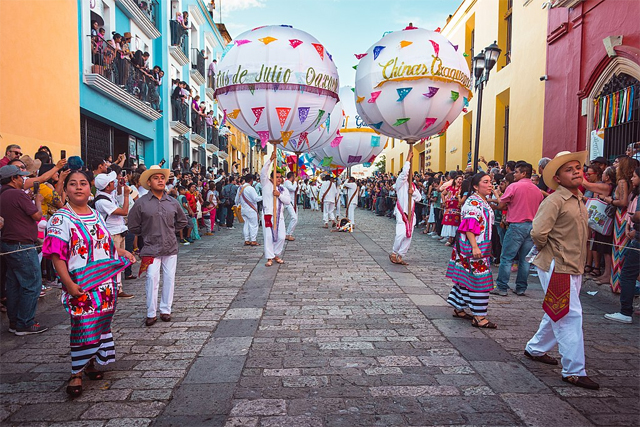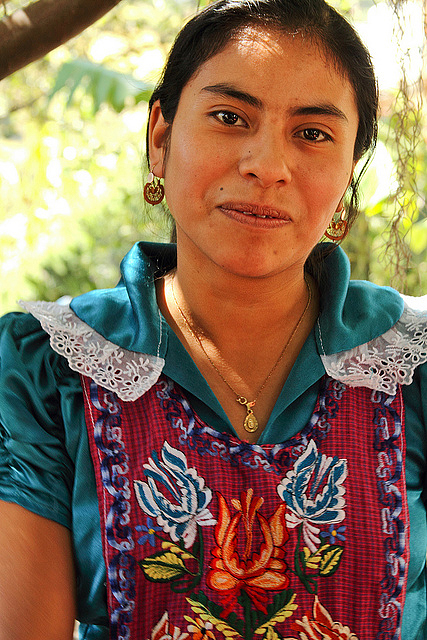A news story in August 2016 indicated that the world-famous Guelaguetza festival of the Zapotec had become so commercialized and made for tourists that the Zapotec themselves were forming alternatives. Called “People’s Guelaguetza” festivals, the alternatives also celebrate in a party atmosphere the Zapotec tradition of sharing and giving but without so many outsiders.

A news report published early last week by the English-language website Mexico News Daily implied that the trend of commercializing the Guelaguetza may not yet have run its course. The article reported that a very well-known young actress from Oaxaca named Yalitza Aparicio has been appointed by the state governor as the ambassador of Oaxaca’s Guelaguetza festival for this coming season.
“The Oaxaca native will be the face of what is probably Latin America’s largest ethnic festival,” the headline for the news story gushed. The article does not bother to give much information about Guelaguetza and what it means to the Zapotec themselves other than having a grand party. It indicates only that the word comes from the Zapotec language meaning “reciprocal exchanges of gifts and services,” before continuing with a breathless paragraph about all the tourists who travel to Oaxaca for the festival each year.
It’s not hard to find more thorough explanations about the real meaning of Guelaguetza in the anthropology literature. Ralph Beals’ 1970 article “Gifting, Reciprocity, Savings and Credit in Peasant Oaxaca” is useful for the information it provides about the Guelaguetza. He writes, p.234-235, that traditional reciprocal exchanges among the Zapotec, usually referred to as “Guelaguetza,” are quite formal and ritualized—the opposite of gifting.

Those ritual exchanges include both labor and goods, and detailed accounting is kept of the exact value of the goods and the precise amounts of labor given. The records are kept for decades so that they can be correctly balanced out by return gifts, which must be returned in value and kind, with cash used to make up any differences. These ‘gifts’ are more nearly comparable to interest-free loans, and the giver views the gifts as a type of savings which can be retrieved on demand.
Guelaguetza contributions are requested of relatives primarily; when they are requested from non-relatives, they do not involve expectations of any special social relationships. While enemies do not form reciprocal exchanges, there is no implication of friendship in this type of exchange, the anthropologist concludes.
For its part, the Mexico News Daily story concludes that Guelaguetza in Oaxaca will take place this year between July 22 and 29 with “countless cultural activities” scheduled for the week in the city of Oaxaca and around the state—all aimed at attracting tourist pesos, of course.